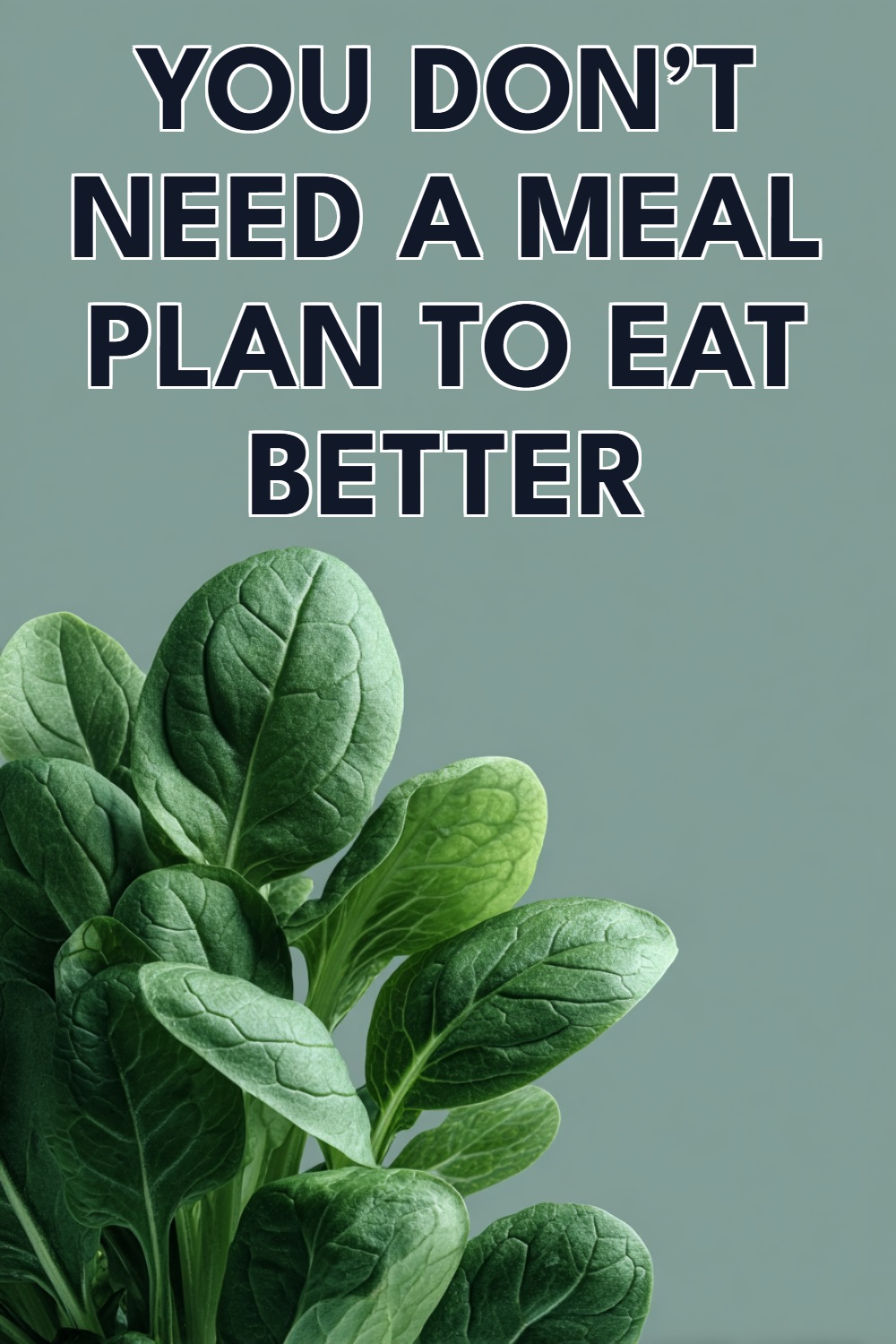Most people try to change their eating habits by adding more rules.
More structure, more restrictions, more pressure to “get it right.”
But habits that feel forced usually don’t last.
If you want habits that stick, they have to feel like something you’re choosing – not something you’re being pushed into.
Here’s how to build food habits that feel like freedom, not control.
Start With Support, Not Perfection
Trying to eat perfectly every day is exhausting.
Instead of aiming for flawless, aim for supportive.
What habits actually help you feel better in your real life?
Eating a decent breakfast so you’re not starving by lunch. Keeping snacks around so you don’t crash mid-afternoon. Taking a few minutes to prep dinner ingredients so cooking doesn’t feel like a mountain.
Those are the kinds of habits that free up mental energy.
Keep the Bar Low – On Purpose
This part is key.
Most people think habits have to be impressive to count. But the best ones are the boring, repeatable ones.
A habit you can do on your busiest, lowest-energy day is a habit you’ll keep doing.
That’s how it becomes automatic.
Add a vegetable to dinner. Pause for 5 seconds before reaching for a snack. Drink a glass of water mid-morning.
Small things repeated often are more powerful than big things done once.

Pick What Actually Works for You
Not every “healthy habit” is going to feel good or fit your life.
Some people love meal prepping. Others hate it.
Some thrive on structure. Others need flexibility.
What matters is finding what feels doable and meaningful for you.
If it doesn’t feel like something you can stick with, it’s not a failure – it’s just a mismatch.
Adjust it. Shrink it. Make it yours.
Make It Feel Like a Kindness
A lot of people build habits from a place of self-pressure.
“I need to stop eating like crap.” “I have no self-control.” “I just need to be better.”
That mindset makes every habit feel like punishment.
Instead, come at it from this angle: “How can I take care of myself a little better today?”
Food habits grounded in self-respect will always go further than habits built on shame.
Let Habits Be Flexible
What works this month might not work next month.
Your energy, schedule, stress levels – they all change.
So give yourself permission to adjust.
Maybe you prepped meals every Sunday in the winter, but now your schedule’s packed. Can you just chop some veg or make one big batch of something?
Habits need to fit your current season, not some perfect version of your life.
Notice How It Feels, Not Just What It Produces
Don’t only measure your habits by weight loss, productivity, or some other outcome.
Ask: “How does this habit actually feel to live with?”
Does it help you feel calmer? More in control? More nourished?
Or is it adding more pressure and stress?
If it’s the second one, that’s not freedom – it’s a signal to shift something.
Let One Habit Support the Next
You don’t need a full routine from day one.
Start with one habit that creates a ripple effect.
Maybe eating a real breakfast helps you snack less later. Maybe keeping a frozen backup meal keeps you from grabbing junk when you’re tired.
Build slowly. Let the habits stack naturally.
One good choice leads to the next.
Insight: Trust Gets Rebuilt Through Small Wins
If you’ve spent years trying to control your eating, you might not trust yourself.
Micro-habits and gentle routines help you rebuild that trust.
Each time you follow through on a habit that supports you – no matter how small – it sends the message: “I can take care of myself.”
That’s how you shift from control to confidence.
Final Thoughts
If your food habits feel heavy, hard, or like punishment, they probably won’t last.
Habits that feel like freedom are rooted in flexibility, self-respect, and practicality.
Keep it small.
Keep it kind.
Keep it yours.
That’s the kind of foundation real change is built on.

